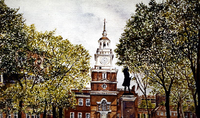An Appeal to Heaven: Difference between revisions
| Line 101: | Line 101: | ||
| [[HRM Wilhelm III]] | | [[HRM Wilhelm III]] | ||
| style="background:#b3ccff; color:black"| Constitutional Monarchy | | style="background:#b3ccff; color:black"| Constitutional Monarchy | ||
|- | |||
| {{flagicon image|Flag Portugal sea (1830).svg}} [[Portugal]] | |||
| {{flagicon image|Flag of Lisboa.svg}} [[Lisbon]] | |||
| 27,349,954 | |||
| [[Europe]] | |||
| [[HRM Duarte II]] | |||
| style="background:#fff300; color:black"| Integralist Monarchy | |||
|- | |||
| {{flagicon image|Flag of Cross of Burgundy.svg}} [[Spain]] | |||
| {{flagicon image|Bandera de Madrid.svg}} [[Madrid]] | |||
| 31,653,953 | |||
| [[Europe]] | |||
| [[HRM Xavier]] | |||
| style="background:#fff300; color:black"| Federal Monarchy | |||
|- | |||
| {{flagicon image|Flag of South Africa (1928–1994).svg}} [[South Africa]] | |||
| {{flagicon image|Flag of Pretoria, South Africa.svg}} [[Pretoria]] | |||
| 18,943,724 | |||
| [[Africa]] | |||
| [[Pieter Willem Botha]] | |||
| style="background:#ffbf80; color:black"| Unitary Parliamentary Republic | |||
|- | |- | ||
|} | |} | ||
Revision as of 18:50, 27 April 2020
This article is incomplete because it is pending further input from participants, or it is a work-in-progress by one author. Please comment on this article's talk page to share your input, comments and questions. Note: To contribute to this article, you may need to seek help from the author(s) of this page. |
 | |
An Appeal to Heaven is a cooperative political simulator doubling as a text based RPG centered around the independent New England as it navigates the mid 20th century in a world torn between imperial powers and the tide of Syndicalism and revolutionary left wing politics. Taking place in a world which is inspired heavily by the Kaiserreich timeline, An Appeal to Heaven takes place in a New England bordered to its north by the Dominion of Canada which provides them an vital lifeline against the tide of syndicalism to New England's south.
An Apeal to Heaven takes place in a world where the Central Powers lost the First World War and the Russian Revolution of 1917 was put down due to a German intervention. Despite this, radical left politics persists in the form of Syndicalism, which first saw success in Western Europe in the rise of Syndicalism through violent revolutions in France, Britain, Italy and Norway. However, the Second World War put an end to the Syndicalist presence in Europe as the Germans and remnant forces of the British and French empires coordinated to halt their advance.
Despite this, the collapse of the United States in the Second American Civil War which began in 1937 saw the rise of American Syndicalism, and the victory in America was echoed by a second, this time successful, revolution in Russia. After winning the Second American Civil War, the newly formed Democratic People's Federation of America, along side its Socialist allies in Mexico, exported their revolution south as far as Colombia and Venezuela, only being halted by Brazil which joined the reformed Entente and the Argentinians, Chileans and Peruvians whom have aligned with the German Empire. Throughout this period of turmoil in the West, the Japanese Empire did not stand idly by instead using the opportunity to expand its reach, conquering vast swathes of China, seizing control of German Indochina after socialist forces overwhelmed the colonial government, and seizing the Philippines and American Pacific islands from the Americans. Going further, the Japanese have expanded their reach to the independent United Pacific States of America and have annexed the Vladivostok based Transamur province into the Empire.
New England may be a small in a world of giants, but standing as the successor the American system, its may yet be destined for greatness. With a unique relationship with Liberia and British colonies and disproportionate military-industrial capacity, New England has a considerable position on the global stage. Inheriting much of the former American Navy, and many the military innovators, New England spends a large portion of its budget on its armed forces. Beyond this, New England stands as one of the most industrialized areas in the world, with New York City remaining among the most prosperous worldwide, and Philadelphia and Boston not far behind. New England is a multi-party democracy, and though most in the country remain either Democrats or Republicans there exists two notable political parties; the Constitution party and the Commonwealth party.
Overwhelmingly a conservative nation due to the social effects of a Syndicalist victory over the MacArthur regime in 1941, New England's politics are mired in anti-Syndicalist rhetoric, though the Democratic Party carefully balances hardline social conservatism with a protectionist and pro-worker agenda. Republicans by contrast are more moderate on social policies, though are still open to common sense regulations, and inheriting the legacy of Theodore Roosevelt, are staunch conservationists, though also in favor of free-trade. The Constitution Party prides itself on originalism and Americanism and are major proponents of the 10th Amendment, though major opponents of the 17th Amendment. The Constitutionalists believe that power needs to be returned to state governments, and that the size of the federal government needs to be limited considerably. Finally, the Commonwealth Party, formed by academics and New English veterans of the Second World War are unabashedly in favor of New English independence. They see the United States as a failed project and wish to create a unique Yankee identity, one which is traditionalist, integrated into the British Commonwealth of Nations and promoting the interests of the Anglo-American plurality.